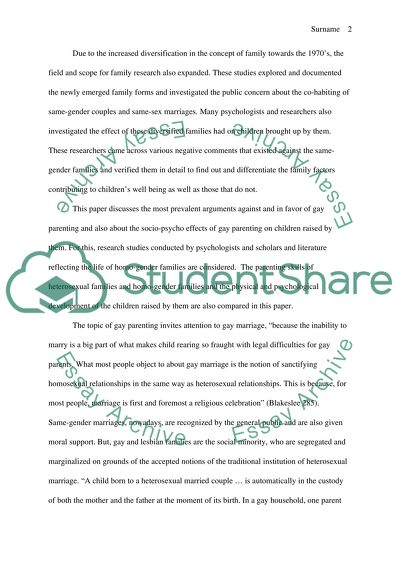Cite this document
(“Gay Parents Research Paper Example | Topics and Well Written Essays - 2750 words”, n.d.)
Retrieved de https://studentshare.org/sociology/1392118-gay-parents
Retrieved de https://studentshare.org/sociology/1392118-gay-parents
(Gay Parents Research Paper Example | Topics and Well Written Essays - 2750 Words)
https://studentshare.org/sociology/1392118-gay-parents.
https://studentshare.org/sociology/1392118-gay-parents.
“Gay Parents Research Paper Example | Topics and Well Written Essays - 2750 Words”, n.d. https://studentshare.org/sociology/1392118-gay-parents.


